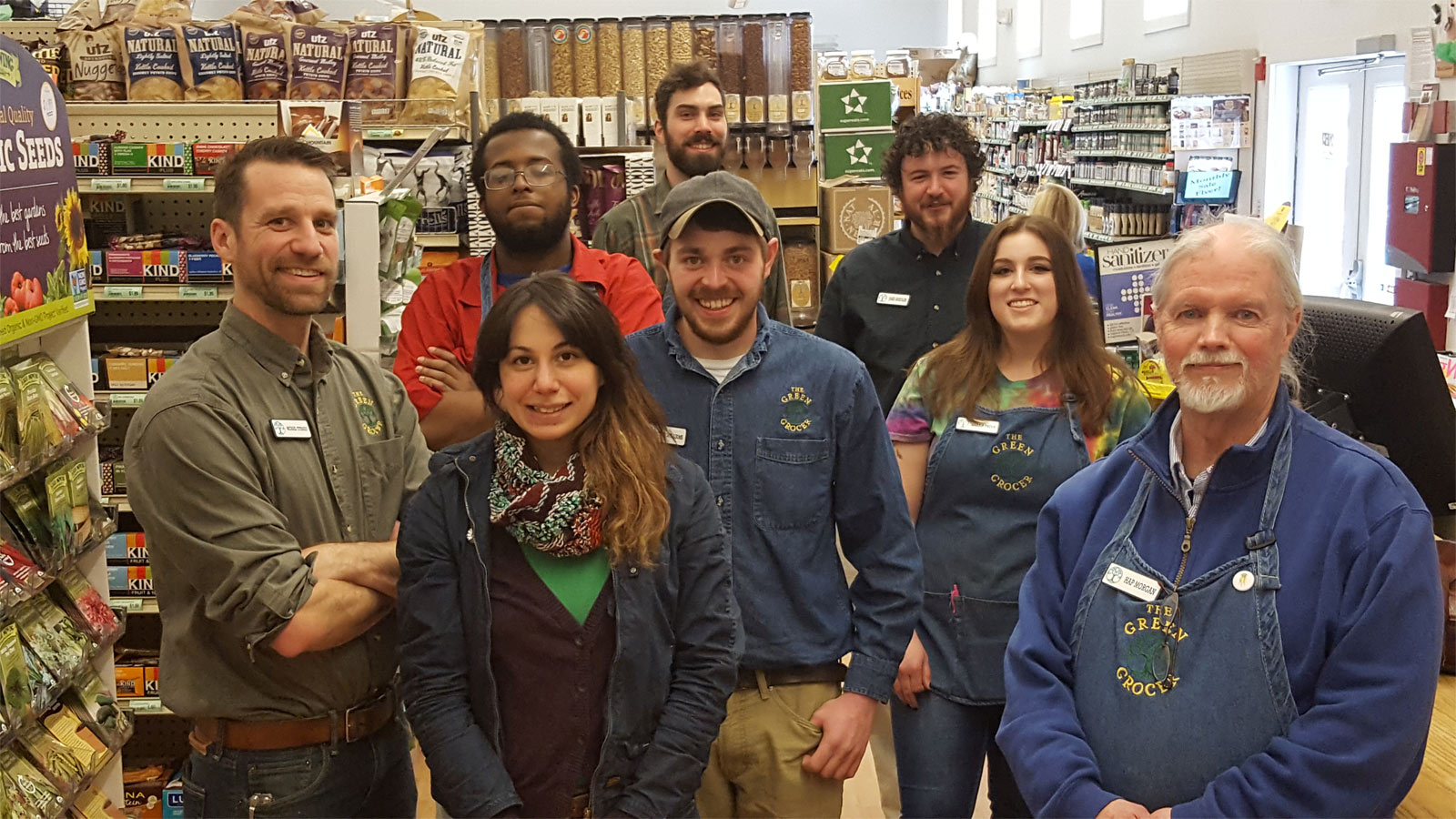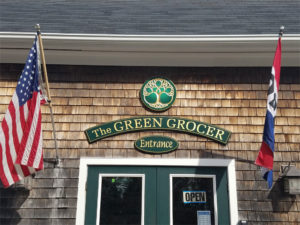John Wood opened a natural foods store in Portsmouth, Rhode Island in 2007 with his wife Aly. Ten years later, The Green Grocer is still in its 3800-sq. ft. location but is watching business boom, as more consumers become conscious of what they choose to eat. The store’s strategy has been to “tell our story”—sharing knowledge about healthier food choices, prioritizing personal interactions with customers, and planting a stake in (and amplifying) community.
The energy fueling the strategy comes from John’s story: a journey from brokenness to health following time serving in the Gulf War. John’s symptoms, a result of exposure to munitions dumps, medicines to protect against chemical attacks, and other toxins, led a doctor to diagnose “environmental illness.” A prescription of clean nutrition and supplements, along with a very gradual weeding out of junk food, helped John restore mental clarity and physical strength.
“The turning point came when I cooked a meal from scratch from Moosewood Cookbook,” he said. “I was amazed at how good simple ingredients can taste…I began to notice how different foods made me feel.”
High standards, trust, and accessible knowledge
The Green Grocer’s mission is to provide all the information and nutrition needed for consumers to begin their own journey to health. The produce is 100 percent organic, with organic shelf products running 60 to 65 percent. The staff is vigilant about stocking only trustworthy products; anything containing suspicious ingredients is pulled.
“We help folks gradually move toward healthier eating,” John said. “We don’t have the ‘no sugar mentality’ for instance, banning it from the store – that would weed out a large segment of the population! Our high nutrient standards set us apart from some of our competition, but we’re not elitist.”
The changing GMO landscape
GMOs have been an issue from the beginning, although John said GMO concerns are ever shifting, with consumer choices changing the landscape. From raw to gluten-free to paleo, dietary trends are reflected in changing store shelves.
“A few years back, rBGH in milk was an issue, but no longer. Now we face new challenges, such as synthetic biology. With things happening so quickly in the technology realm, we have to keep alert all the time.”
The Non-GMO Project butterfly seal, present on so many retail products now, has had a significant impact on sales at The Green Grocer. John said. “There’s a level of misunderstanding by consumers about the Non-GMO Project—they think the seal means more than it actually does,” John said. “People think non-GMO is the equivalent of organic food; they wonder why organic costs more. I find it discouraging that ‘organic’ didn’t do a good job in getting the word out. If we had, the Non-GMO Project wouldn’t have been needed.”
The value to the Project is the testing—National Organic standards don’t require testing organics for GMOs. “The Non-GMO Project has an advantage as an independent body, not dependent on federal funds,” said John. “We need to start requiring testing for organic products.”
Photo goes viral—no turning back
In 2012, Kashi products were pulled on learning that they contained GMO soy; a store photo of the shelf notice went viral, prompting a huge backlash against Kashi and a deluge on its call-in phone lines. “Once that photo went viral, we crossed a threshold and couldn’t turn back,” John said. “The controversy created a conversation about GMOs that went way beyond activity in our store. To have been a part of that was an incredible honor.”
As a member of INFRA (Independent Natural Food Retailers Association), The Green Grocer will be participating in Non-GMO Month in October, sponsoring discounts on non-GMO brands, point-of-sale advertising, and social media events. Facebook has been invaluable as a vehicle to spread the store’s message and products.
The small retailer’s advantage
The reward for a decade of hard work? “Feeling like I’ve done something good every day,” said John. “I believe in this.”
And how does a small store compete with large-presence chains like Whole Foods—which, now integrated with Amazon, may create a seismic impact on shopping habits? “Normally huge companies can leverage because of their resources, but in the organic market with finite supplies, it’s different,” John reflected. “Time will tell if Amazon can achieve lower prices in a finite-supply market. The only thing left to do as a small retailer is to tell our story.”






